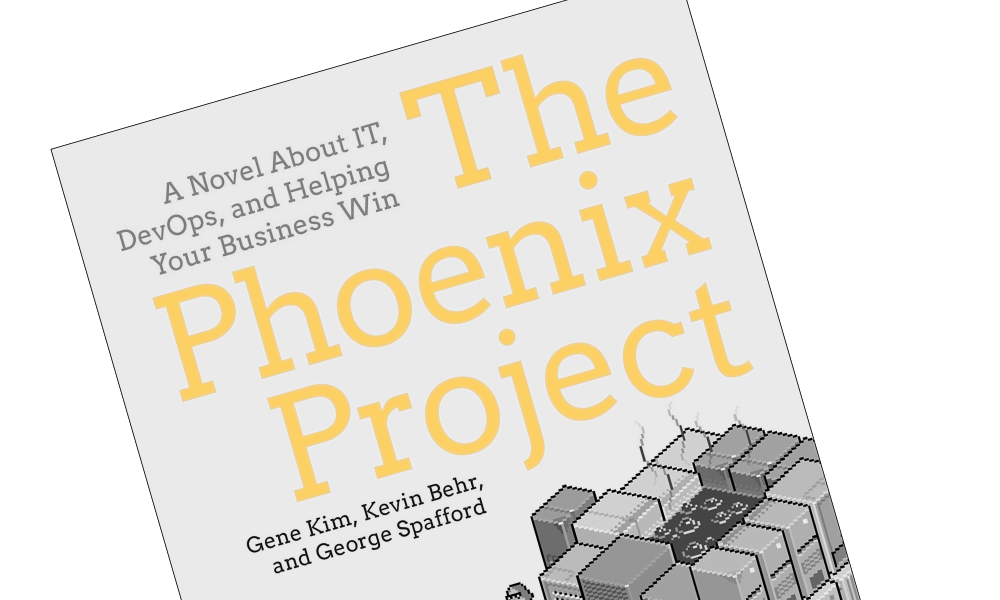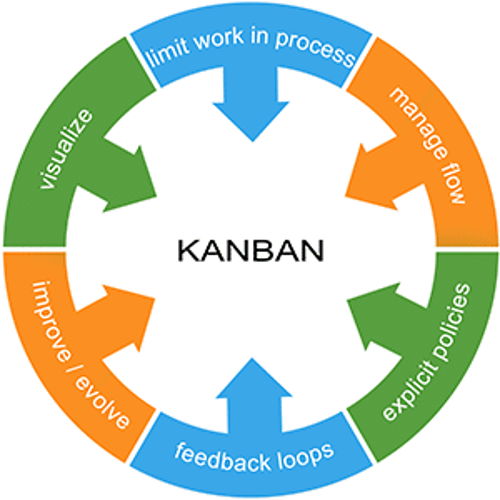The story is about Bill, an IT manager, suddenly promoted from Director of Mid-range technology Operations to VP of IT Operations. The company’s major project, code named Phoenix project, is critical to the future of Parts Unlimited but is massively over budget and very late. The CEO wants bill to report directly to him and fix the mess in ninety days or else Bill’s entire department will be outsourced. With the help of a prospective board member and his mysterious philosophy of The Three Ways, Bill starts to see that IT work has more in common with manufacturing plant work than he ever imagined. With the clock ticking, Bill must organize work flow streamline interdepartmental communications, and effectively serve the other business functions at Parts Unlimited
1) DevOps is a collaborative working relationship between Development and IT Operations, resulting in the fast flow of planned work, while increasing the reliability, stability of the production environment. It’s enabled by technologies (Continuous Integration/Deployment, Jenkins, Chef/Puppet, etc.) and the way Dev and Ops work together
2) The Three Ways principle:
- The First Way: Systems Thinking
- Always seeking to achieve deep understanding of the system. Schedule around and protect your constrains (Brent in the story)
- The Second Way: Amplify Feedback Loops
- Process improvement initiative is to shorten and amplify feedback loop. Remember, it goes beyond reducing WIP. Being able to take needless work out of the system is more important than being able to put more work into the system. To do that, you need to know what matters to the achievement of the business objectives, whether it’s projects, operations, strategy, compliance with laws and regulations, security, or whatever
- Spend effort to increase throughput, reduce lead time as apposed to put your constrains (Brent) into multiple work streams at a time. Standardize the tasks that you put on Brent: You’re standardizing Brent’s work so that other people can execute it. And because you’re finally getting those steps documented, you’re able to enforce some level of consistency and quality, as well. You’re not only reducing the number of work centers where Brent is required, you’re generating documentation that will enable you to automate some of them
- The Third Way: Culture of Continual Experimental and Learning
- It requires 2 things: 1) taking risks and learning from both success and failure; 2) understand that repetition and practice is the prerequisites to mastery …nothing is more to mastery than practice and drills. Studies have shown that practicing five minutes daily is better than practicing once a week for three hours. And if you want to create a genuine culture of improvement, you must create those habits
3) Things start to be back on track when Bill and his team re-align their focus to Company’s goals.
Interview CFO and business process owner, they discovered the right focus that IT should spend effort on.
Parts Unlimited’s CFO goals
- Health of company
- Revenue
- Market share
- Average order size
- Profitability
- Return on assets
- Health of Finance
- Order to cash cycle
- Accounts receivable
- Accurate and timely financial reporting
- Borrowing costs
Questions
- Are we competitive?
- Understanding customer needs and wants: Do we know what to build?
- Product portfolio: Do we have the right products?
- R&D effectiveness: Can we build it effectively?
- Time to market: Can we ship it soon enough to matter?
- Sales pipeline: Can we convert products to interested prospects?
- Are we effective?
- Customer on-time delivery: Are customers getting what we promised them?
- Customer retention: Are we gaining or losing customers?
- Sales forecast accuracy: Can we factor this into our sales planning process
4) Effectively manage IT is not only a critical competency but a significant predictor of company performance. IT does matter.
5) Put IT Operations in to Development to define non-functional User Stories such as deployment, management of the code in production, performance, security. etc. will reduce downstream headache, reduce pain and unexpected tasks during production deployment and thus enable faster deployment flow, feedback loop, bring more value to business. Unlike the other categories of work, unplanned work is recovery work, which almost always takes you away from your goals. That’s why it’s so important to know where your unplanned work is coming from








